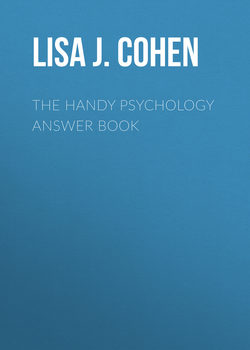Читать книгу The Handy Psychology Answer Book - Lisa J. Cohen - Страница 261
На сайте Литреса книга снята с продажи.
Are there other kinds of intelligence that the WAIS doesn’t measure?
ОглавлениеIf we define intelligence as information processing that allows us to adapt to our environment, then the WAIS only taps a narrow range of such skills. American developmental psychologist Howard Gardiner (1943–) has argued against the idea of a single, unitary intelligence, proposing instead the existence of multiple intelligences, including forms based in the body, and social and emotional forms of intelligence. Similarly, psychologist and science journalist Daniel Goleman (1946–) has written extensively about emotional intelligence, the ability to process emotional and interpersonal information effectively. Folk psychology speaks about street smarts, political acumen, business smarts, mechanical aptitude, and even common sense. None of these are directly measured on the WAIS, although we would assume the visual-spatial tests to have some relationship to mechanical aptitude. We do know, however, that people with very low intellectual skills—as measured by tests such as the WAIS—have significantly reduced interpersonal and self-care skills. On the other hand, we probably all know people with very high IQs who are sorely lacking in emotional and interpersonal skills and even common sense. Therefore we can conclude that the WAIS measures some aspects of intelligence that are related, but not identical, to other aspects of intelligence.
